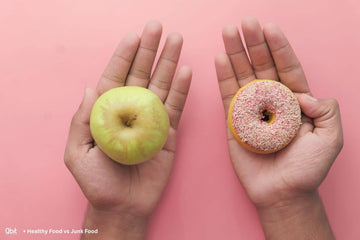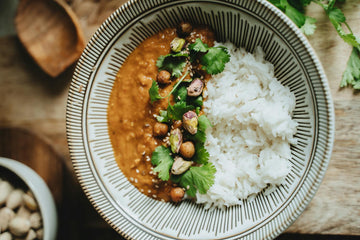The Power of Food on Your Health
In today’s fast-paced world, food is more than just fuel. It shapes our physical health, mental clarity, emotional stability, and longevity. But the stark contrast between healthy food and junk food lies not only in ingredients but in their long-term impact on our bodies and minds.
1. Healthy Food vs Junk Food: A Comparative Overview
| Aspect | Healthy Food | Junk Food |
|---|---|---|
| Nutritional Content | High in fiber, protein, vitamins, minerals | High in sugar, trans fats, sodium |
| Ingredient Quality | Whole, fresh, natural | Processed, artificial additives |
| Satiety Factor | Keeps you full longer | Promotes overeating |
| Health Benefits | Supports immunity, digestion, mental clarity | Linked to obesity, diabetes, heart disease |
| Impact on Mood | Stabilizes mood | Triggers mood swings, anxiety, and brain fog |

2. Nutrient Density: Fuel vs Filler
Healthy Foods:
- Rich in macronutrients: complex carbs, healthy fats, and lean proteins.
- Packed with micronutrients: B-vitamins, iron, zinc, magnesium.
- High in fiber: Supports gut health and reduces inflammation.
Junk Foods:
- High in refined sugars and trans fats.
- Deficient in fiber and essential nutrients.
- Often contain preservatives and synthetic chemicals.
These differences shape how our body processes energy, manages weight, and fights disease.
3. Short-Term vs Long-Term Effects on Health
Healthy Eating Promotes:
- Consistent energy levels
- Improved digestion
- Stronger immunity
- Better sleep and skin health
Junk Food Leads To:
- Blood sugar spikes and crashes
- Fatigue and brain fog
- Digestive issues like bloating and constipation
- Weight gain and poor cardiovascular health
"Every bite is a vote for the type of body and health you want."
4. The Psychological Toll of Junk Food
- Studies show links between junk food and depression, especially diets high in sugar and low in omega-3s.
- Ultra-processed foods overstimulate the dopamine system, leading to addiction-like behavior.
- Lack of nutrients affects neurotransmitter production, influencing anxiety and mental fatigue.
5. How Food Affects Children
Children raised on a diet of processed snacks, soda, and instant foods may face:
- Increased risk of childhood obesity
- Attention and learning difficulties
- Early signs of type 2 diabetes
- Poor immunity and slower physical development
Parents and schools have a vital role in shaping children's eating behavior and relationship with food.
6. Economic & Lifestyle Myths
Junk Food Appears Cheap... But Isn’t
- Hidden health costs include medication, time off work, and doctor visits.
- Nutrient-rich home-cooked meals are more cost-effective over time.
Healthy Eating is Not Time-Consuming
- Meal prep, batch cooking, and healthy snacks can save time and energy.
7. Environmental Impact of Food Choices
| Impact | Healthy Food | Junk Food |
|---|---|---|
| Packaging | Often minimal or biodegradable | Plastic, non-recyclable |
| Farming Practices | Sustainable, supports biodiversity | Chemical-intensive monoculture farming |
| Carbon Footprint | Lower when locally sourced | High due to processing and shipping |

8. Making the Switch: Practical Steps
- Gradual Replacement – Swap one junk item per week with a healthy version.
- Flavor Enhancement – Use herbs, spices, and lemon to elevate taste.
- Smart Shopping – Stick to the produce and grain aisles.
- Read Labels – Watch for hidden sugars, sodium, and preservatives.
- Portion Control – Serve smaller portions and avoid eating directly from packages.
9. Real-World Swaps to Inspire Better Habits
| Junk Food | Healthy Substitute |
|---|---|
| Fried Chips | Roasted chickpeas or air-popped popcorn |
| Cola and Soft Drinks | Sparkling water with lime or kombucha |
| Candy and Chocolate | Dark chocolate or fruit-nut energy bites |
| Burgers and Fries | Grilled veggie wraps with hummus |
| Ice Cream | Frozen fruit blends or Greek yogurt |
10. Frequently Asked Questions
Q1: Is it okay to eat junk food occasionally?
Yes, the key is moderation. An 80/20 approach (80% healthy, 20% indulgent) is sustainable and realistic.
Q2: How can I stop junk food cravings?
- Stay hydrated.
- Increase protein and fiber intake.
- Avoid keeping junk food at home.
- Address emotional triggers behind cravings.
Q3: Can healthy food taste good?
Absolutely. With the right ingredients and seasonings, healthy meals can be incredibly satisfying and flavorful.
Q4: Are all processed foods bad?
Not all. Light processing (like freezing or drying) is fine. Ultra-processed foods with additives, artificial ingredients, and sweeteners are the real concern.
11. How to Build Lifelong Healthy Eating Habits
Start with a Routine:
- Eat meals at consistent times.
- Avoid skipping breakfast.
- Carry homemade snacks like trail mix or fruit.
Involve Your Family:
- Cook together.
- Try healthy cooking challenges.
- Educate kids on food labels and meal prep.
Stay Inspired:
- Follow health-focused social media accounts.
- Subscribe to clean-eating newsletters.
- Set monthly nutrition goals.

12. Expert Insight: What Nutritionists Say
"The problem isn’t that people don’t want to eat healthy. It’s that the food system is built for convenience, not for health. Once we empower people with knowledge, the shift becomes possible." — Dr. Aarti Mehta, Clinical Nutritionist
13. Conclusion: Invest in Your Health with Every Bite
The battle between healthy food vs junk food is really about choice and awareness. Food is either medicine or a slow poison. When you eat real, nourishing food, you invest in your future health, clarity, performance, and happiness.
Say yes to meals that heal. Say no to snacks that steal.
Because in the end, what you eat is who you become.












